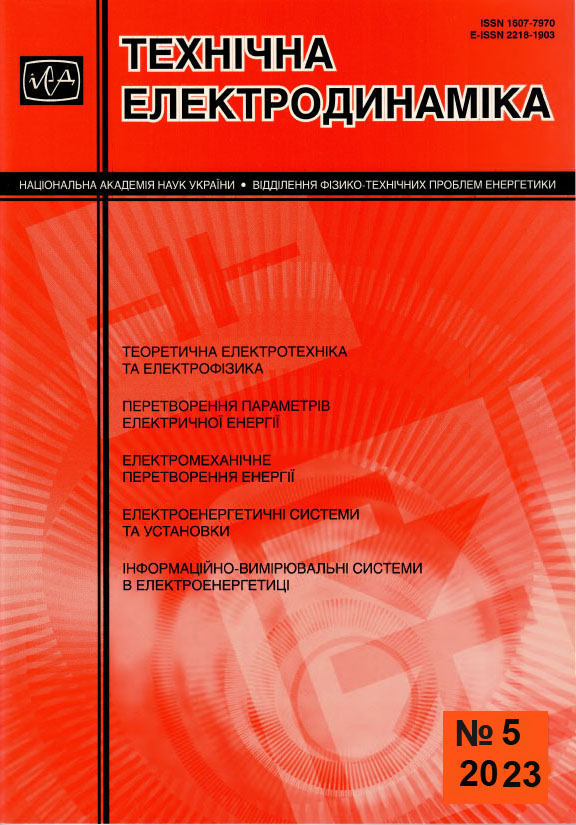Abstract
The work has developed a methodology for calculating voltage values on the main elements of the wireless battery charging system, which allows at the design stage of such systems to choose the necessary parameters of coils and an additional high-frequency transformer, while harmonizing the voltage value on the battery with the voltage at the output of the high-frequency inverter. A comparison of the calculation results using the developed methodology with the corresponding results obtained using the developed Simulink-model of the system showed that their maximum discrepancy does not exceed 15%. It is noted that in practice, when developing such systems to match the voltage of the rechargeable battery with the high-frequency inverter, it is possible to either use an additional high-frequency transformer, or choose the necessary ratio of turns of the transmitting and receiving coils. In the latter case, the possibility of high voltage resonance voltage on the coils and capacitive elements should be taken into account, which requires the use of reinforced insulation and the fulfillment of all requirements for the operation of devices at the corresponding high voltage. References 6, figures 3, table 1.
References
Shidlovsky A.K., Zharkin A.F., Pavlov V.B., Novsky V.O. The influence of the development of the charging infrastructure of electric and hybrid transport on the regimes of electric networks. Tekhnichna elektrodynamika. 2018. No 3. Pp. 74–82 (Ukr). DOI: https://doi.org/10.15407/techned2018.03.074.
Podoltsev O.D., Pavlov V.B., Zapadynchuk O.P. Analysis of the efficiency of electric energy transmission in the system of wireless charging of the battery of an electric vehicle. Tekhnichna elektrodynamika. 2021. No 4. Pp. 63-69. DOI: https://doi.org/10.15407/techned2021.04.063
Wireless charging-cars (blog from 28.08.2015). URL: https://ecocars.wixsite.com/sale/single-post/2015/08/28/беспроводная-зарядка-автомобилей (accessed at 115.03.2023).
Trivino-Cabrera A., Gonzalez-Gonzalez J., Aguado J. Wireless Power Transfer for Electric Vehicles: Foundations and Design Approach. Springer, 2020. 175 p. DOI: https://doi.org/10.1007/978-3-030-26706-3
Song M., Belov P., Kapitanova P. Wireless Power transfer inspired by the modern trends in electromagnetics. Applied Physics Reviews. 2017. No 4. Pp.0211102(1-19). DOI: https://doi.org/10.1063/1.4981396
Xi Zhang, Choug Zhu, Haitao Song. Wireless Power Transfer Technologies for Electrica Vehicles. Springer, 2022. 268 p. DOI: https://doi.org/10.1007/978-981-16-8348-0

This work is licensed under a Creative Commons Attribution-NonCommercial-NoDerivatives 4.0 International License.
Copyright (c) 2023 Tekhnichna Elektrodynamika


